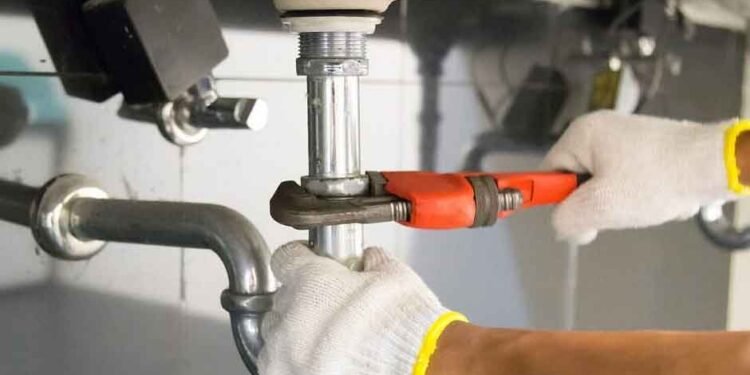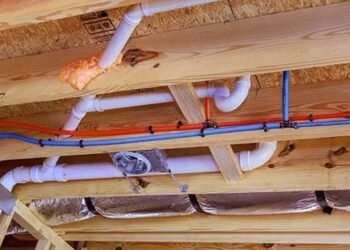Plumbers really are unsung heroes of civilisation, and no, we’re not talking about a certain video game character either.
When you gather a lot of people together, there are certain problems that need to be addressed. How do you feed them all? What kind of shelter will they have? How do you ensure that they all stay healthy?
It’s this last question that requires the intervention of plumbers.
The Historical Perspective
As bad as you may think things can get now, they’re not a patch on the conditions our ancestors found themselves living in.
Way back in the mists of time, cities were dirty places. Disease and sewage were constant problems and led to the populations living short and rather smelly, unpleasant lives.
As time passed, cities like Rome and those of the Indus civilisation discovered that effective management of human waste and easily accessible drinking water improved conditions and life expectancy.
Undertaking huge public building works, like the Cloaca Maxima (which is well worth a visit if you find yourself in Italy) and the viaducts which litter Europe and North Africa, the Romans created perhaps the most famous networks of plumbing. The result was a huge uptick in public health.
So effective were these efforts that some of them are still in use today.
The Sanitation Revolution
While the works of the Romans and Indus civilisation were a huge leap forward, it’s not until the 19th century that we see something we might recognise as sanitary conditions evolving in cities.
After a particularly deadly outbreak of cholera on Broad Street, London in 1854, the city council employed a physician named John Snow to investigate.
This investigation led to a revolution in our understanding of both disease and the importance of clean water. From here, we quickly developed separate drinking and sewage systems and ensured that they were connected to each home.
Plumbing’s Impact On Disease Prevention
Thanks to the findings of Snow and other physicians, we now understand how plumbing can help keep us healthy.
Preventing Waterborne Disease
Diseases such as typhoid, dysentery and cholera are now all but unheard of in modern cities- a stark contrast to the settlements of our ancestors.
When human or animal waste enters the water supply, it carries with it all kinds of pathogens. When we ingest these, they make us ill. Modern plumbing ensures that there is little to no risk of tainted water mixing with our drinking supply, ensuring clean, healthy water for all.
Our modern plumbing systems also ensure that waste water is conducted away from our homes to where it can be properly treated, ensuring that even once it drains away, it can do no harm.
Reducing The Spread of Pathogens
Plumbing doesn’t only help us deal with waterborne diseases. Having a handy supply of fresh water also means that it’s much easier to keep infectious diseases such as the flu or COVID-19 under control too.
Who can forget the ubiquitous public health campaigns telling us to wash our hands at every opportunity during the dark days of the pandemic? Thanks to modern plumbing, this simple action was one of the single most effective ways of controlling the spread.
Being able to keep things like surfaces and hand, not to mention medical facilities, squeaky clean is perhaps the most effective tool we have in ensuring public health remains good.
Plumbing and Personal Hygiene
Plumbing doesn’t just play a vital role in keeping the public healthy on a population level- it’s a key element in keeping us healthy on a personal level too.
Being able to wash our clothes, clean our dishes, shower and brush our teeth all play a role in keeping us fighting fit, reducing stress on our immune systems and reducing the chances of us being made ill by our environments.
Facilities For Sanitation
Not only do plumbers ensure that we can wash at will, they’re also responsible for ensuring that the worst of the dirt, that is human waste, is flushed harmlessly away to where it can be treated and rendered harmless.
Safe, effective toileting systems in homes and public spaces ensure that our exposure to waste and all the horrible things it can lead to if left unchecked is kept to an absolute minimum. These, coupled with public water treatment plants, ensure we live in relatively healthy environments.
Challenges
Of course, while we in the west may take the effects of good sanitation for granted, it’s an unfortunate fact that much of the world’s population haven’t seen the full benefits of the sanitation revolution yet.
There are great swathes of the world where something as simple as clean drinking water is a rare luxury, let alone anything approaching a sanitary toileting system. In others, damage to public infrastructure from conflict leads to outbreaks of disease amongst those least able to fight it off.
Seeing stories about what happens when something as basic as plumbing fails en mass brings just how important the things we take for granted really are.
Innovations
While we have seen great strides in public health through better sanitation over the past 200 years, there are further steps being taken all the time. Innovations such as touchless faucets and improvements to the techniques we use for purifying and treating water continue to improve public health.
The Role Of Plumbers and Plumbing Companies
Plumbers are at the forefront of this revolution in public health. By ensuring that we have simple, easy access to clean drinking water, the ability to clean ourselves and our environments effectively and that waste is conducted harmlessly away, they play a role every bit as vital as any doctor.
During emergency situations, be that something like the pandemic or even an outbreak of conflict, plumbers play an important role in stopping a bad situation becoming much worse than it need be.
Even under ideal circumstances, by undertaking preventative measures like inspections and routine maintenance, plumbers help to keep the horrors of poor public health at bay.
It may sound grandiose, but it really is no exaggeration to say that modern life simply couldn’t continue without plumbers.












